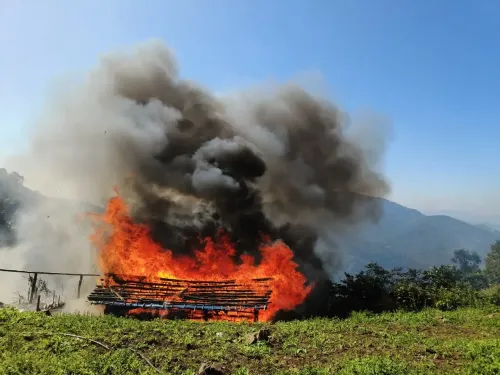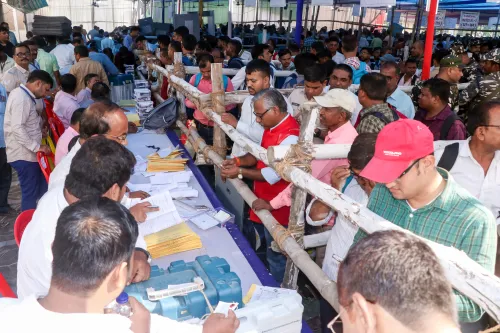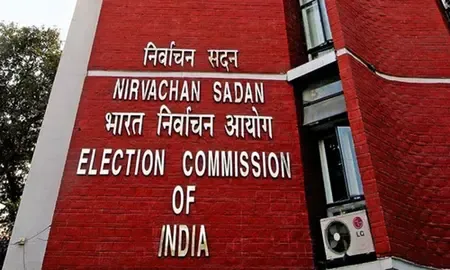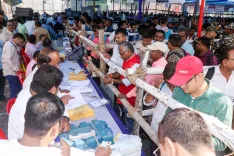LeT Operative Linked to Rajouri and Reasi Attacks Neutralized in Pakistan

Synopsis
Key Takeaways
- Abu Qatal was a key figure in Lashkar-e-Taiba.
- Involved in the 2023 Rajouri attack and 2024 Reasi bus attack.
- Eliminated under unclear circumstances in Pakistan.
- Significant target for Indian security agencies.
- His death impacts the fight against terrorism in Jammu and Kashmir.
New Delhi, March 16 (NationPress) Abu Qatal, a prominent operative of Lashkar-e-Taiba (LeT) and one of the most sought-after terrorists involved in the 2023 Rajouri attack and the 2024 Reasi bus attack, has been eliminated in Pakistan under enigmatic circumstances, as per media sources.
Also recognized as Faisal Nadeem, Qatal was allegedly shot down by unknown assailants late Saturday night.
He had been a top target for Indian security forces, including the National Investigation Agency (NIA) and the Indian Army, due to his involvement in orchestrating numerous deadly assaults in Jammu and Kashmir.
A close associate of Hafiz Saeed, the architect of the 26/11 Mumbai attacks, he was instrumental in the June 9, 2024, attack on a bus carrying Hindu pilgrims in Reasi district of Jammu and Kashmir. This brutal attack, executed under his command, resulted in multiple fatalities and injuries, intensifying security concerns in the area.
He was significantly involved in the 2023 Rajouri terror attack, during which terrorists targeted civilians in Dhangri village on January 1, followed by an IED explosion the next day.
The coordinated strikes led to the loss of seven lives, including two children, and left many others injured.
His name featured prominently in the NIA's investigations, which revealed the involvement of Pakistan-based LeT handlers in recruiting and deploying terrorists across the border, with the aim of targeting civilians, especially from minority communities, alongside security forces.
After thorough investigations, the NIA filed a chargesheet against five individuals, including three Pakistan-based LeT commanders: Abu Qatal, Saifullah alias Sajid Jutt (also known as Ali, Habibullah, and Nouman), and Mohd Qasim.
The chargesheet illustrated how Qatal, along with his companions, was crucial in strategizing and executing attacks aimed at destabilizing the region. Qasim, originally from India, had entered Pakistan in 2002 and subsequently joined LeT.
The NIA's findings uncovered that these LeT operatives were directly responsible for training and infiltrating terrorists into Jammu and Kashmir, executing targeted assaults on civilians, and striving to incite unrest. Their operations were conducted under direct orders from Pakistan-based handlers, who coordinated the attacks remotely.
While the precise circumstances surrounding his death are still undisclosed, this event signifies a major milestone in the battle against terrorism in Jammu and Kashmir.
Indian security agencies are keeping a close watch on the situation.









